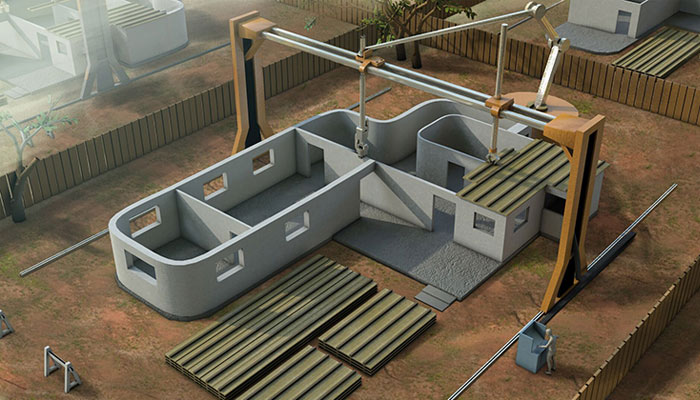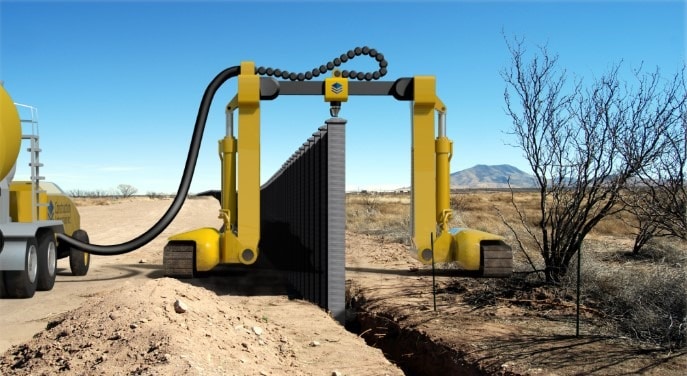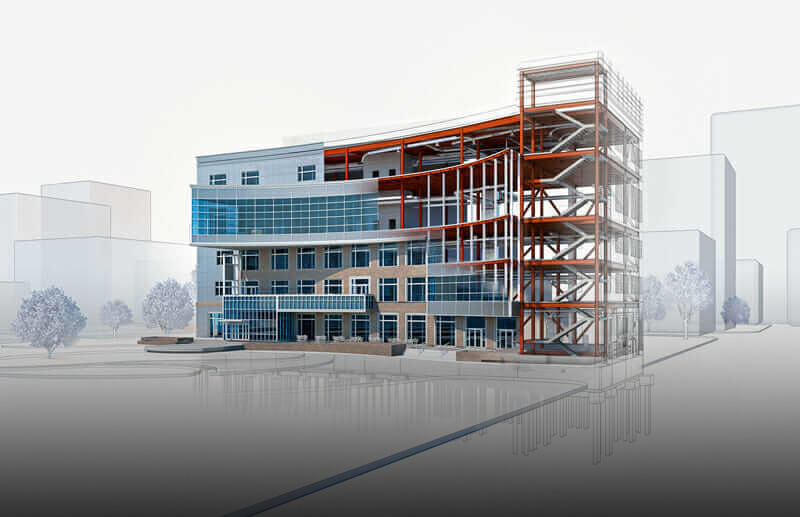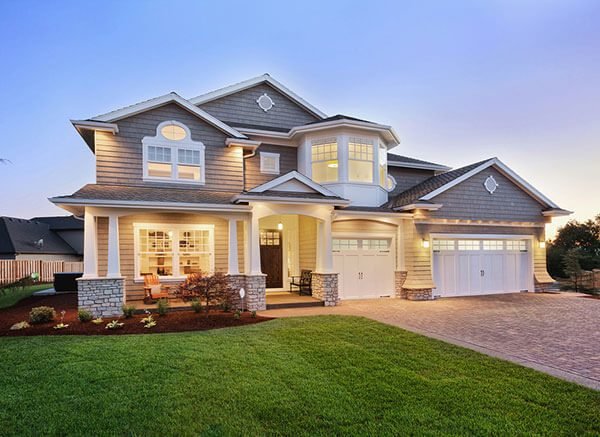6 Types of Construction Technologies You Will Use in the Future
The construction industry is constantly evolving, and technological advancements play a crucial role in shaping its future. As we move forward, several exciting technologies are poised to revolutionize the construction industry. From innovative materials to advanced processes, let’s explore some of the future technologies that will transform the way we build.
As the construction industry continues to evolve, advancements in technology are reshaping the way we build structures. In the future, there are six key types of construction technologies that are poised to revolutionize the sector. First, 3D printing will gain prominence, allowing for faster and more precise construction of complex building components. Drones will become a common sight on construction sites, streamlining surveying, monitoring progress, and enhancing safety inspections. Augmented Reality (AR) will enable architects and construction workers to visualize and interact with virtual building designs in real-world settings, facilitating better planning and collaboration. Additionally, Building Information Modeling (BIM) will enhance project coordination and management by integrating data from various stakeholders into a central digital model. Sustainable construction technologies, such as green materials and renewable energy integration, will become standard practices as the industry strives for eco-friendly solutions. Lastly, autonomous construction equipment will increase efficiency and safety, allowing machines to operate independently in various tasks. Embracing these technologies promises a future of more sustainable, efficient, and innovative construction processes.
1. 3D Printing in Construction
One of the most promising future technologies in construction is 3D printing. This revolutionary technique involves using large-scale printers to create entire building structures layer by layer. By utilizing materials such as concrete or composite materials, 3D printing enables faster construction, reduces material waste, and offers design flexibility. In the near future, we can expect to witness the widespread adoption of 3D printing in construction, leading to faster and more sustainable building processes.
2. Robotics and Automation
Robotics and automation are already making their presence felt in the construction industry, and their impact is set to increase further in the future. Robots equipped with advanced algorithms and sensors can perform repetitive and labor-intensive tasks with precision and efficiency. From bricklaying and concrete pouring to excavation and demolition, robots enhance productivity, improve safety, and expedite construction processes. As technology advances, we can anticipate more sophisticated and specialized robots tailored for specific construction tasks.
3. Building Information Modeling (BIM)
Building Information Modeling, or BIM, is a digital representation of a construction project that integrates 3D models with detailed information about the building’s components and systems. BIM facilitates collaboration among architects, engineers, and contractors, allowing them to visualize and simulate the entire construction process. With the ability to identify clashes and conflicts before construction begins, BIM minimizes errors, improves coordination, and optimizes resource utilization. In the future, BIM will become the industry standard, transforming the way construction projects are planned, executed, and managed.
4. Augmented Reality (AR) and Virtual Reality (VR)
Augmented Reality and Virtual Reality technologies are set to revolutionize the construction industry by enhancing visualization, design, and communication. With AR and VR, architects and engineers can create immersive virtual environments where stakeholders can experience and interact with proposed designs. These technologies enable better design validation, clash detection, and on-site construction guidance. By overlaying digital information onto the physical world, AR and VR improve collaboration, reduce errors, and streamline decision-making processes.
5. Sustainable Construction Materials and Techniques
As sustainability becomes increasingly important in construction, new materials and techniques are emerging to address environmental concerns. From recycled and eco-friendly materials to energy-efficient designs, the future of construction will prioritize sustainability. For example, self-healing concrete can repair cracks autonomously, extending the lifespan of structures and reducing maintenance costs. Additionally, the integration of renewable energy systems, green roofs, and smart building technologies will contribute to more sustainable and energy-efficient construction practices.
6. Internet of Things (IoT) and Smart Construction
The Internet of Things (IoT) is transforming various industries, and construction is no exception. IoT devices and sensors embedded in construction equipment, machinery, and buildings enable real-time monitoring, data collection, and analysis. By capturing data on construction site conditions, equipment performance, and energy usage, IoT enables proactive maintenance, enhances safety, and optimizes resource allocation. In the future, interconnected smart systems will revolutionize construction, leading to smarter, more efficient, and safer building processes.
What Type of Technology is Used in Construction?
The construction industry relies on a wide range of technologies to streamline processes, enhance productivity, and improve project outcomes. These technologies encompass various aspects of construction, from planning and design to construction execution and project management. Let’s delve into some of the key types of technology used in construction:
- Building Information Modeling (BIM): BIM is a digital representation of a construction project that integrates all relevant data and information, including design, construction, and operational details. BIM software allows stakeholders to collaborate, visualize, and analyze the project in a virtual environment. It facilitates accurate 3D modeling, clash detection, quantity takeoffs, and project coordination.
- Construction Management Software: Construction management software offers a comprehensive suite of tools for project planning, scheduling, document management, and communication. These software solutions enable efficient collaboration among project teams, track progress, manage budgets, and streamline construction processes.
- Drones: Unmanned aerial vehicles, or drones, are increasingly used in construction for various purposes. Drones equipped with high-resolution cameras can capture aerial imagery and survey large construction sites quickly and accurately. They aid in monitoring project progress, conducting inspections, and identifying potential safety hazards.
- Mobile Technology: Mobile devices and applications have become indispensable tools in the construction industry. Construction professionals use smartphones and tablets to access project documents, communicate with team members, manage schedules, and track progress on-site. Mobile technology improves communication and collaboration, reduces paperwork, and enhances real-time data collection.
- GPS and Surveying Equipment: Global Positioning System (GPS) technology and advanced surveying equipment play a vital role in construction. GPS allows for precise location and positioning of structures and equipment on the construction site. Surveying equipment, such as total stations and laser scanners, ensures accurate measurements, site layout, and verification of design specifications.
- Virtual Reality (VR) and Augmented Reality (AR): VR and AR technologies provide immersive experiences and visualization capabilities in construction. VR allows stakeholders to virtually walk through and experience a construction project before it is built, aiding in design validation and stakeholder communication. AR overlays digital information onto the physical environment, offering real-time guidance and instructions on-site.
- Robotics and Automation: Construction sites employ various types of robots and automation systems to perform repetitive or hazardous tasks. These include bricklaying robots, autonomous excavation equipment, and robotic arms for material handling. Robotics and automation enhance productivity, improve precision, and reduce the risk of accidents.
What is the New Technology in the Construction Industry in 2023?
The construction industry is constantly evolving, and new technologies continue to emerge that have the potential to revolutionize construction practices. While the specific technologies may vary, here are some potential advancements expected in the construction industry in 2023:
- Artificial Intelligence (AI): AI technology is poised to make significant strides in construction. AI algorithms can analyze vast amounts of data, identify patterns, and optimize construction processes. AI applications in construction include predictive analytics, project risk assessment, and autonomous equipment control.
- Advanced Materials: Researchers and manufacturers are constantly developing advanced materials specifically designed for construction applications. These materials may possess enhanced strength, durability, thermal properties, or sustainability features. Examples include self-healing concrete, high-performance composites, and eco-friendly building materials.
- Internet of Things (IoT): The IoT is expected to have a substantial impact on the construction industry in the coming years. IoT devices and sensors can collect real-time data on various construction parameters, including structural health, equipment performance, and environmental conditions. This data enables proactive maintenance, improves safety, and optimizes resource utilization.
- Modular Construction: Modular construction, where building components are manufactured off-site and assembled on-site, is gaining popularity due to its potential for cost and time savings. In 2023, advancements in modular construction techniques, such as improved design integration and standardized interfaces, are expected to further accelerate its adoption.
What are Advanced Construction Technologies?
Advanced construction technologies encompass cutting-edge innovations that push the boundaries of traditional construction methods. These technologies leverage advancements in materials science, robotics, automation, and digitalization to revolutionize the industry. Here are some examples of advanced construction technologies:
- Prefabrication and Modularization: Advanced prefabrication techniques allow for the off-site fabrication of building components with high precision and quality control. This method reduces construction time, minimizes waste, and enhances productivity. Modular construction, as mentioned earlier, is a prime example of advanced prefabrication.
- Robotics and Automation: Advanced robotic systems are being developed to perform complex construction tasks autonomously or in collaboration with human workers. These robots can execute tasks such as bricklaying, welding, and material transportation with high precision and efficiency.
- 3D Printing: 3D printing, or additive manufacturing, has the potential to revolutionize construction by enabling the fabrication of complex structures and components. This technology allows for the customization of designs, reduces material waste, and offers new possibilities for architectural creativity.
- Digital Twins: Digital twins are virtual replicas of physical assets or processes. In construction, digital twins simulate and analyze the behavior and performance of buildings, infrastructure, or construction processes. They enable predictive maintenance, optimize energy consumption, and enhance overall project management.
- Smart Construction Materials: Advanced materials with smart capabilities, such as self-sensing concrete or self-cleaning coatings, are being developed. These materials can monitor their own condition, provide early warnings of structural issues, and improve the durability and sustainability of construction projects.
In conclusion, the construction industry is embracing a wide array of technologies to improve efficiency, productivity, and sustainability. From BIM and construction management software to drones, robotics, and advanced materials, these technologies are reshaping the way we design, plan, and construct buildings and infrastructure. As new technologies continue to emerge, the construction industry is poised to undergo transformative changes, leading to safer, more efficient, and more sustainable construction practices.
Read More: Top Construction Companies in Pakistan












